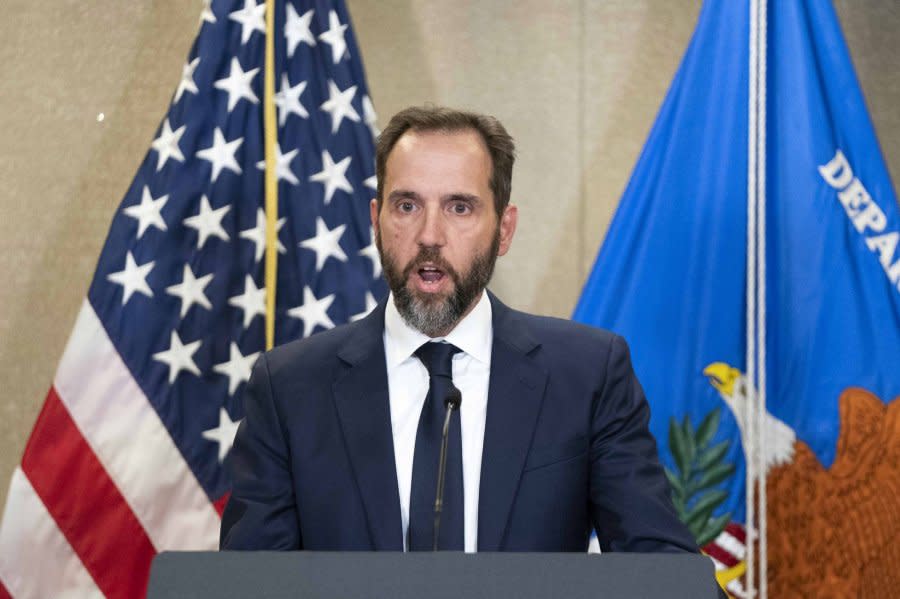Special Counsel Jack Smith pushes back on Trump's bid to delay Jan. 6 trial until 2026

- Oops!Something went wrong.Please try again later.
- Oops!Something went wrong.Please try again later.
Aug. 21 (UPI) -- Prosecutors in former President Donald Trump's federal election interference case argued Monday the public would be denied "its right to a speedy trial" if the case were pushed to 2026 as sought by Trump.
In a sharply worded six-page reply filed by Special Counsel Jack Smith, prosecutors urged U.S. District Judge Tanya Chutkan to reject the former president's reasoning for delaying a potential trial in the landmark case, rather than commencing it on Jan. 2, 2024, as proposed by Smith.
Trump's lawyers argued last week that delaying the trial to 2026 is justified, among other reasons, because Chutkan has allowed longer pretrial periods in other cases related to the Jan. 6, 2021 attack on the Capitol as well by the sheer volume of documents to be reviewed in the discovery process.
Additional time is also necessary, they asserted, because of the former president's busy legal schedule as he faces three other criminal indictments.
In their reply, however, prosecutors attacked each of those arguments.
Assistant Special Counsels Molly Gaston and Thomas Windom countered in the filing that Trump's comparisons to the judge's other Jan. 6 cases is flawed because some of those cases were prolonged due to plea negotiations and happened during the COVID-19 pandemic when court schedules were elongated.
They also contended that Trump's argument on discovery documents "rests on the faulty assertion that it is necessary for a lawyer to conduct a page-by-page review of discovery for a defendant to receive a fair trial."
Rather, "the defendant can, should, and apparently will adopt the benefits of electronic review to reduce the volume of material needed to be searched and manually reviewed," they wrote.
Prosecutors also sought to counter the former president's contention that scheduling conflicts with his other legal cases necessitated a delay, such as the fact that the proposed start of jury selection on Dec. 11 conflicts with a motions hearing in Trump's other federal case involving retention of classified documents at his Mar-a-Lago estate in Florida.
"True" conflicts "are easily addressed," they argued, proposing that jury selection instead begin "later during the week of December 11 to accommodate the hearing date in the Florida case."

